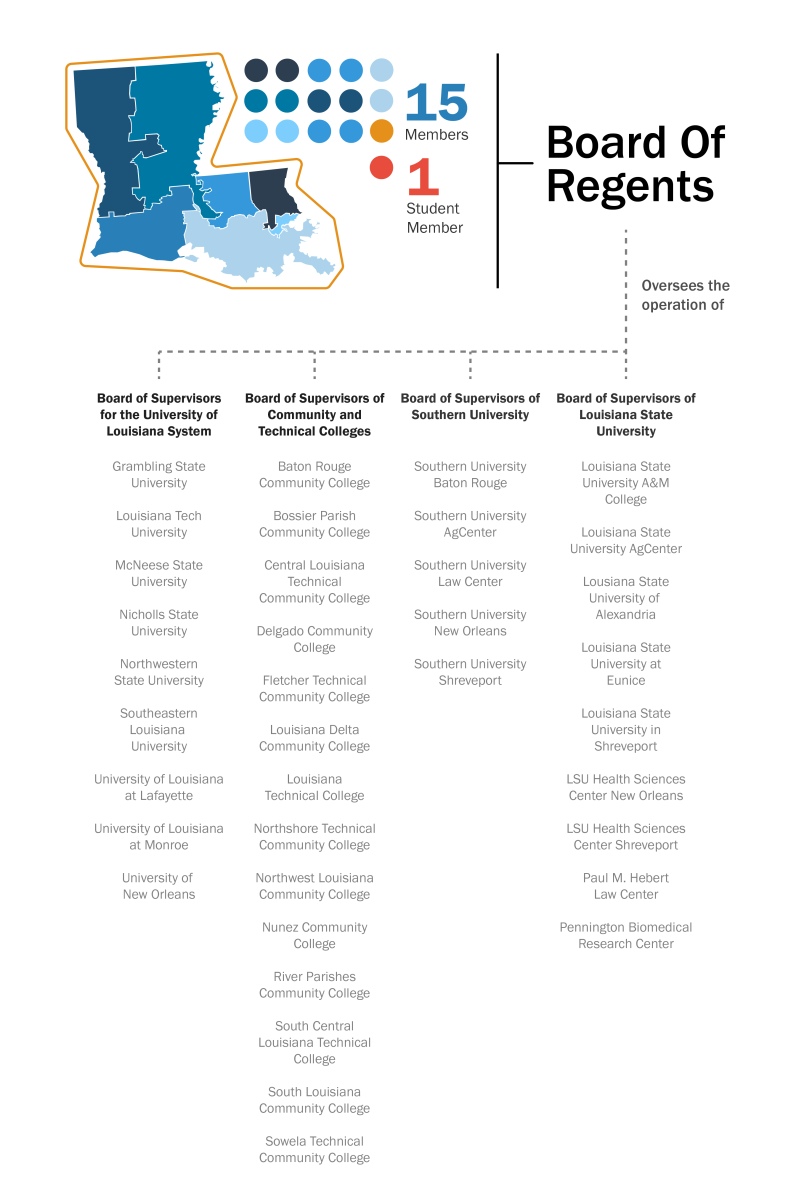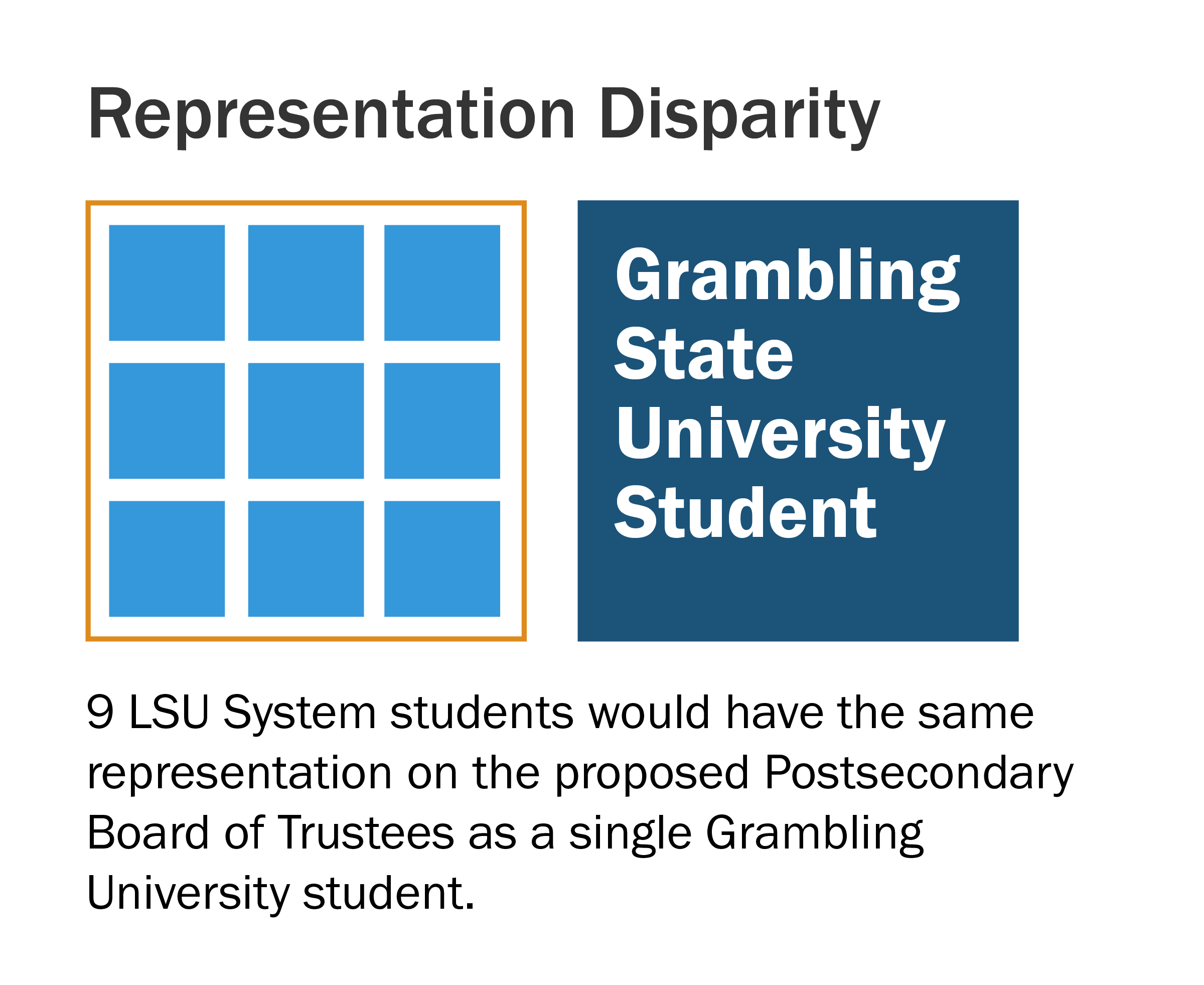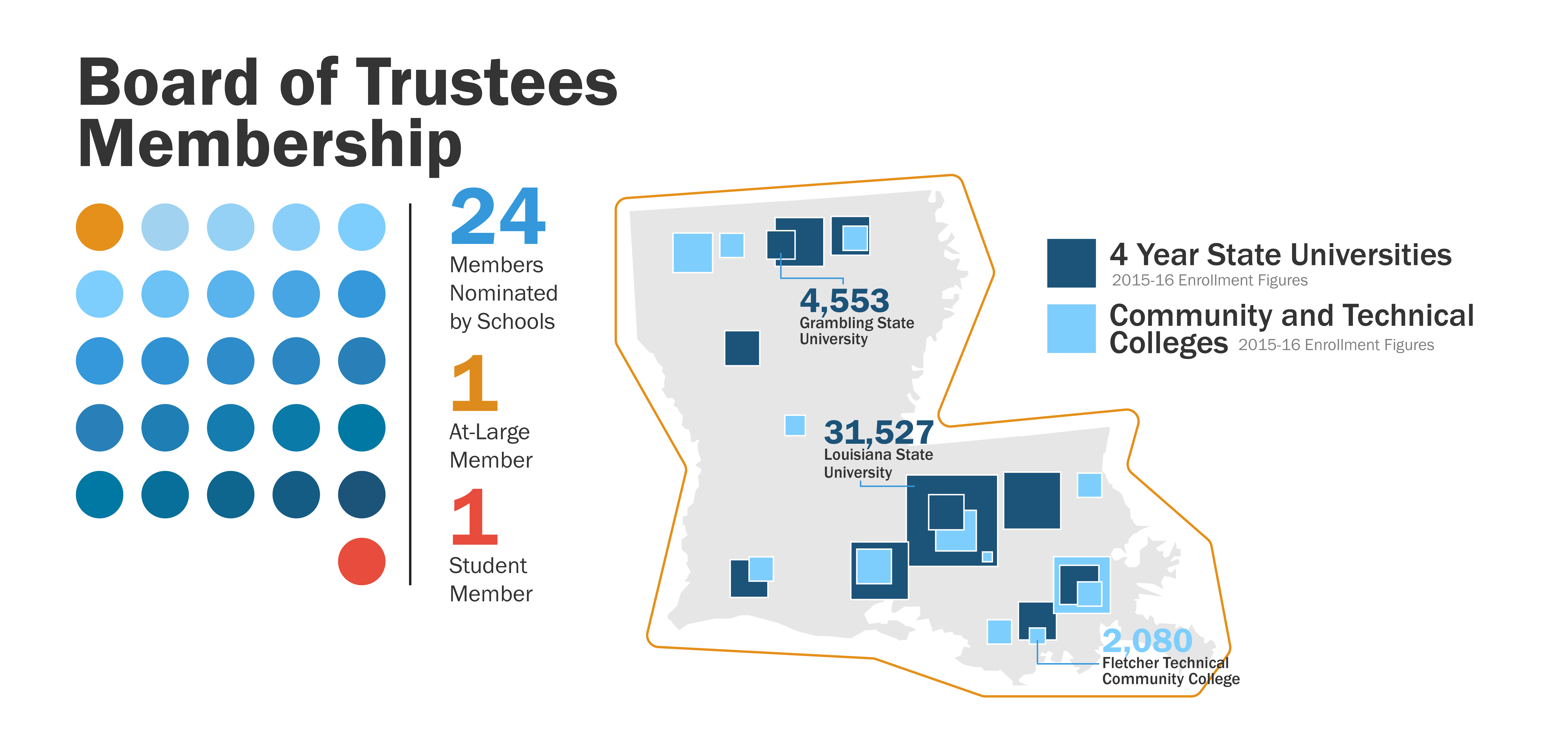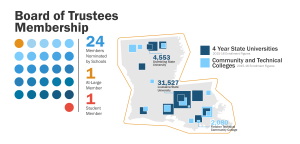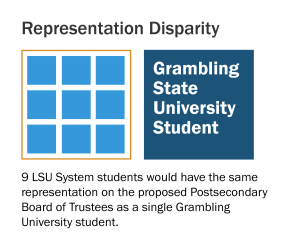Big changes could be coming to the way higher education in Louisiana is administered.
A proposed constitutional amendment being considered by the Louisiana House of Representatives would overhaul the structure of the policymaking system in the state by consolidating the current five boards related to postsecondary education into one board.
The current higher education board system in Louisiana operates on a two-level system. The Louisiana Board of Regents oversees all of the higher education programs in the state. A constitutionally-mandated government body, the Board of Regents, holds five enumerated powers under Article VIII, Section 5 of the Louisiana Constitution:
- To revise or eliminate an existing degree program or department of instruction
- To approve, disapprove or modify a proposed degree program or department of instruction
- To oversee the creation or merger of any institutions
- To create master plans for higher education in Louisiana
- To submit budget recommendations to the Louisiana legislature based on annual budgets prepared by the supervisory boards.
Any responsibilities not specifically assigned to the Board of Regents are then delegated to one of four Boards of Supervisors: University of Louisiana System, Louisiana State University System, Southern University System and the Board of Supervisors of Community and Technical Colleges. All colleges and universities which do not intrinsically fall under any of these systems are governed by the University of Louisiana system, making it the largest of the four with more than 90,000 students.
Each board is composed of 15 members: two from each congressional district and the rest selected from the state at large. Members are appointed by the governor with consent from the state Senate, and sit for six-year terms. A student member is also appointed to each board who serves for one year at a time.
House Bill 34, proposed by Rep. Stephen Pugh, R-Ponchatoula, aims to overhaul the higher education board system by consolidating these boards into a single Louisiana Postsecondary Board of Trustees.
The proposed Board of Trustees would absorb the powers previously delegated to each of the Boards of Supervisors and retain the previous powers vested in the Board of Regents. This would mean all administrative decisions for every postsecondary institution in the state would lie with this board, including all budgetary, management and supervision authority.
The proposed board would be comprised of 25 members, one nominated from each postsecondary institution in Louisiana, and an additional member at large. Terms would remain at six years.
The primary motivation behind the consolidation effort is cost savings, Pugh said. Last month, the Louisiana State Legislature passed a budget deal just hours before the end of the special session to fill a $304 million budget shortfall by using $99 million from the state’s “rainy day fund” and introducing $82 million in spending cuts. Although these measures will hold the state through the end of this fiscal year, more permanent measures will have to be taken in the future to avoid more budget turmoil in the future.
“I came here in 2008 — universities weren’t cut then. After that, every year since then universities have been cut,” Pugh said. “I’m tired of that.”
Between fiscal years 2008 and 2012, Louisiana cut its annual higher education budget by more than $459 million, a decrease of 28 percent. Only South Carolina (30.39 percent) and Arizona (32.25 percent) saw a larger change in total state funding for public colleges and universities according to a 2014 report from the Center for American Progress, a liberal advocacy group.
The report also notes that Louisiana spent 37.8 percent less on full-time equivalent college students in 2012 than it spent in 2008, despite tuition rising by 6.2 percent in the same period.
Although the changes outlined in the bill certainly won’t cover all the cuts to Louisiana higher education, “every little bit helps,” Pugh said.
A financial audit of the potential cost benefit is being conducted in order to determine whether there would be a significant enough benefit to warrant changing the system.
“When we get it back it may not be a benefit, and if that’s the case I’ll drop the bill,” Pugh said.
Assuming the proposed constitutional amendment is approved by voters, Pugh said cost savings in the first year the bill is in effect would be returned to institutions based on their enrollment numbers, and the money would be introduced into each university’s general budget.
“Whatever money is saved the first year,” Pugh said, “that money will go back, per student, to the individual universities.”
This provision is not currently explicitly included in the document, but Pugh said he has the amendment waiting.
Despite the potentially major implications if HB 34 passes, Pugh said he has heard little to no feedback from the higher education systems around the state.
“I’m surprised I haven’t got any calls from LSU. [LSU President] F. King Alexander hasn’t called — nobody on their board has called,” Pugh said. “That’s what surprises me about the universities, is that they’re not calling me to see what we can do to accomplish the same thing maybe in a different way, they might have a better idea.”
The major systems around the state — first and foremost the LSU System and the Southern University System — stand to lose the most if the bill is adopted. According to the bill, the entirety of the LSU and Southern University systems would each be represented by a single member. This is in contrast to the University of Louisiana system which would receive one member per university in the system.
Although this would “level the playing field” for the universities, it would also reduce the representation of the more than 45,000 students in the LSU System to that of an individual university in the University of Louisiana system or community college.
Although not necessarily representative, Pugh said he feels it will reduce in-fighting within the boards that currently stand.
“The money would be there to be used as that one board sees fit, so you wouldn’t have that inner fighting of the boards,” Pugh said. “The money would be there to be used fairly and democratically.”
Equal representation by institution would also counteract smaller institutions being swept under the rug by larger systems like LSU. Pugh believes that the larger systems will be able to counteract this just with the inherent bargaining power associated with their size.
This is not the first time a bill like this has been proposed. An almost identical version of this bill was proposed in both the 2015 and 2016 regular sessions, but the bills died in the House Education Committee each time.
The bill currently sits pending House Education committee approval. If passed on from there, two thirds of each house of the Louisiana Legislature would need to approve it before it would be voted on statewide in the upcoming election.



